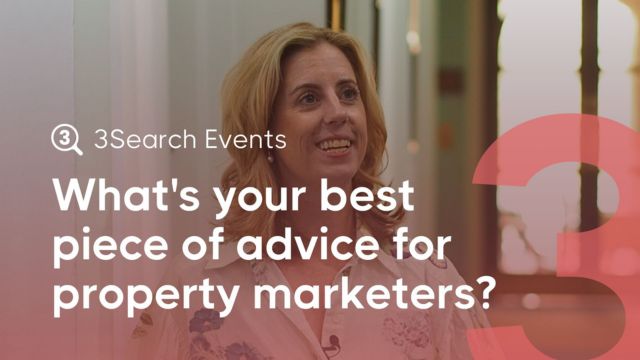
Upload Your CV
Send us your CV and a member of the team will be in touch to discuss open opportunities with you.
Imagine if, at 12pm daily, everyone in your office stopped reading, typing or talking and to...

Imagine if, at 12pm daily, everyone in your office stopped reading, typing or talking and took 30 minutes to sit cross-legged on the floor, taking long, deep breaths, and quietly contemplating the existence of inner peace?
Think that sounds daft? Think again.
This is exactly the sort of thing that is happening in offices across ‘super cool’ California, and – if it’s passionate advocates have anything to do with it – it will soon be crossing the Atlantic and coming to London as well.
The current trend for meditation among California’s business elite could be more than just a fad, though. Medical researchers and business school professors have found evidence that meditation reduces stress, lowers blood pressure, improves memory, increases attention spans and literally changes the way our brains handle emotional situations.
So what does mindfulness actually mean? The general gist is that, via a variety of techniques (including meditation, yoga and other forms of light exercise), you can become more aware of your surroundings, think more clearly and calmly and focus on the broader picture. It’s roots are firmly in Buddhist traditions, but today it’s largely devoid of overtly religious elements.
If that all sounds a bit mumbo-jumbo to you, then you’re not alone. A leading neuroscientist, for example, has argued that many of the claims of the mindfulness movement are probably exaggerated. In a recent blog post, Catherine Kerr – director of neuroscience at Brown University in the United States, wrote:
‘One of the few things we can say with certainty about the science of mindfulness is that, at least in its public presentation, it appears to be based more on rhetoric than rigor, having less to do with actual science than it does with sounding “scienc-y.”’
Healthy scepticism aside, the mindfulness trend has no shortage of high-profile supporters. Here are five of its biggest supporters explaining why they believe meditation has been crucial to their success.
Benioff, founder and chief executive of the staggeringly successful cloud computing firm Salesforce, is one of Silicon Valley’s biggest supporters of meditation. Speaking to a recent tech conference, for example, he argued that meditation could improve how business leaders perform:
‘One of the most important things that any of us can do when we’re getting ready to create something, and when we want to make the world better, is first and foremost to take a step back. The next step I try to advise entrepreneurs to do is to clear your mind, make room for some new ideas, and get back to a beginner’s mind.’
Unlike some others, Benioff isn’t a recent convert to the meditation trend, however. Speaking to the San Francisco Chronicle back in 2005, the leading tech exec said: ‘I enjoy meditation, which I’ve been doing for over a decade — probably to help relieve the stress I was going through when I was working at Oracle’.
It doesn’t take very long browsing the Twitter feed of Jeff Weiner, LinkedIn’s chief executive, to realise that he is a passionate advocate for all things meditation.
Tweet1 Tweet2 Tweet3 Tweet4
For Weiner, meditation is central to his management style. ‘My single most important productivity tool is to make time in my schedule each day to clear my mind and do nothing’, he told the audience of meditation buffs at the Wisdom 2.0 conference earlier last year. ‘As the company grows larger … you will require more time than ever before to just think’, Weiner wrote in a LinkedIn blog in April.
Arianna Huffington, the chief executive and editor-in-chief of the Huffington Post, came across mindfulness as a technique for stress reduction after suffering a devastating burn out in the mid-2000s. In her own words, she ‘collapsed literally from burnout, sleep deprivation, exhaustion — hit my head on my desk, broke my cheekbone, and found myself coming to in a pool of blood of my own’.
That moment forced her to reevaluate her priorities, a process that ultimately led her a mixture of daily yoga and meditation which, she says, allows her to balance the stresses of work with the need to maintain overall personal wellbeing.
These days, Huffington is an advocate of mindfulness not only from the perspective of personal well-being, but also because of its beneficial impact on the corporate bottom line. ‘Stress-reduction and mindfulness don’t just make us happier and healthier, they’re a proven competitive advantage for any business that wants one’, she wrote in a recent blog.
Winfrey, the chat show host turned hyper successful businesswoman, is an outspoken advocate of the benefits of meditation. Speaking to the Dr Oz show in the United States recently, Winfrey said:
‘… That way of being “still with ourselves” – coming back to the centre – and recognising that something is more important than you, it’s more important than the work you are doing, brings a kind of energy, an intention that we have never had before. ‘
And you can imagine what has happened in the company! People who used to have migraines, don’t. People are sleeping better. People have better relationships. People interact with other people better. It’s been fantastic!’.
You might expect that the billionaire co-founder of Twitter, Evan Williams, is too busy with work to take time off take time out to meditate. At first, during the ‘crazy as crazy gets’ years at Twitter, he agrees that was the case. Not now, though.
In his latest venture, Obvious Corporation, Williams has introduced regular meditation sessions and actively encourages staff to take time off for contemplation or exercise, even in the middle of the working day.
Speaking to last year Wisdom 2.0 conference about his recent experiences with meditation at work, Williams was clear about the benefits he saw for the workplace:
‘I evangelise this because, dudes, this makes me smarter and happier, and more creative’, he said.
3Search is a specialist digital and marketing recruitment company in London. Check out 3Search on LinkedIn, Twitter and Facebook for more insights.